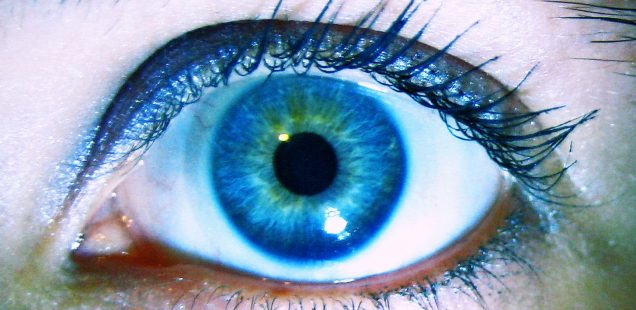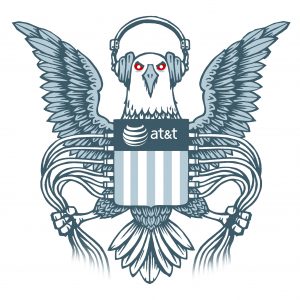NSA Contractors Join Privacy Shield | | PirateTimes

NSA Contractors Join Privacy Shield
This post is also available in: Spanish
Did you really think that the European Union would protect your privacy? Don’t be so naive.
The US-EU Privacy Shield program is supposed to give EU citizens greater data protections. As I wrote previously, the Privacy Shield program has several legal loopholes, which makes it look a bit like a block of Swiss cheese.
To add insult to injury, not only does the Privacy Shield fail to protect people’s private data, even NSA contractors are invited to join the party! The Privacy Shield program gives these NSA contractors the ability to transfer personal data stored in the EU to the US. From watching international news over the past few years, you may remember how Edward Snowden blew the whistle on the NSA’s mass surveillance programs. Snowden exposed how the US government had access to read your emails and to listen in on your phone calls.
Including NSA contractors on the list of Privacy Shield is a bit like letting the fox guard your henhouse. While some of the NSA contractors are signed up only to share human resources data, their inclusion in the program does nothing to improve Privacy Shield’s already dismal public image. The companies on the list are allowed to submit a self-assessment to ensure their compliance with Privacy Shield. In practice, this means that these companies have little or no independent oversight.
The following NSA contractors have joined the Privacy Shield program: BAE Systems, Boeing, General Dynamics, Lockheed Martin, Northrop Grumman, and Raytheon.
With the inclusion of NSA contractors in the Privacy Shield program, it is rather obvious that the US government cares nothing for data protection. While Europeans are lulled into a false sense of security with Privacy Shield, the US continues to build its surveillance state.

BAE Systems
In 2013, BAE Systems won a multi-year contract with the NSA for high performance computing. The contract is valued at $127 million. A leaked top-secret document outlines the NSA’s surveillance priorities for 2012-2016. One of the NSA’s stated goals is to use high performance computing to crack encryption. As a goal, the document states that the NSA plans to “Dynamically integrate endpoint, midpoint, industrial-enabled, and cryptanalytic capabilities to reach previously inaccessible targets in support of exploitation, cyber defense, and cyber operations.” In other words, the NSA plans to use its high performance computing program to broaden its surveillance capabilities, and BAE Systems is helping.
Boeing
The American telecom, AT&T, built a secret room in one of its centers to facilitate NSA spying. In 2006, an AT&T technician blew the whistle and revealed the NSA’s massive spying operations. The NSA used a device to sift through massive amounts of data from the internet’s backbone. The device was made by a company called Narus. In 2010, Boeing acquired Narus.
In 2008, Boeing acquired Digital Receiver Technology (DRT). The NSA used DRT equipment to track people’s locations by their cellphone signals. Some DRT devices also have the ability to listen in on cellphone conversations and jam cellphone signals. Several DRT devices appear in the NSA’s surveillance catalog.
General Dynamics
In 2014, the Intercept revealed that the NSA was recording virtually every phone call in the Bahamas. The program is called SOMALGET, which is part of a broader surveillance program called MYSTIC. The broader surveillance program, MYSTIC, collects phone call metadata from several countries including Mexico, Kenya, and the Phillipines. General Dynamics had an 8 year contract valued at $51 million to process data for the MYSTIC program.
Lockheed Martin
In 1988, Margaret Newsham, a software engineer for Lockheed Martin, blew the whistle on a massive NSA spying program. The NSA was intercepting phone calls and electronic data in a surveillance program called ECHELON. While working for Lockheed Martin, Newsham was helping to create software that ran the ECHELON program. Newsham also revealed that the NSA was listening to phone calls of a US Congressman.
The US military’s research arm, DARPA, awarded contracts for the Total Information Awareness (TIA) program. The TIA program would collect massive amounts of data and use a predictive policing model. In other words, TIA used automated analysis to identify people as potential terrorists. In a very eery sense, it was the film Minority Report becoming reality. DARPA gave Lockheed Martin 23 contracts valued at $27 million for the TIA program. Several branches of the US government were involved in the TIA program, including the NSA. In 2012, the New York Times revealed that the NSA was running a program very similar to the TIA. The full extent of the TIA’s legacy would not be revealed until the Snowden leaks in 2013.
Northrop Grumman
In 2000, the NSA launched the Trailblazer project. The aim of Trailblazer was to update the old Cold War era interception technology employed by the NSA. The Trailblazer project was mired in scandal. The NSA had wasted over a billion dollars for a program that did not work. Northrop Grumman was one of the contractors working on the failed Trailblazer project.
The Trailblazer project was terminated in 2006. The next year, the NSA awarded Northrop Grumman a $220 million contract. The contract was to help the NSA manage the vast amounts of data it collected from its surveillance programs.
Raytheon
In 2009, the NSA founded the US Cyber Command. The new command center would focus on defensive as well as offensive cyber warfare. Raytheon posted job advertisements for “cyber warriors” to work at locations near known NSA sites.
In 2010, the NSA awarded Raytheon a classified $100 million contract for the Perfect Citizen program. The program would place sensors, to detect cyber attacks, in the backbone infrastructure of public utilities. A Raytheon employee criticized the program with the following words in an email: “Perfect Citizen is Big Brother.” The NSA rather comically claimed that Perfect Citizen would not be used for spying; however, privacy advocates were worried that the program would be used for domestic surveillance.
The text of this article is released into the public domain. You are free to translate and republish the text of this article. Featured picture is CC BY-NC-ND 2.0 Flicker user jrothphotos. Secondary picture CC by EFF.
Printouts from PrivacyShield.gov website, link.

About Rachael Tackett
Originally part of the Occupy protests, Rachael is an advocate for transparency in government and digital civil liberties.













koconor100